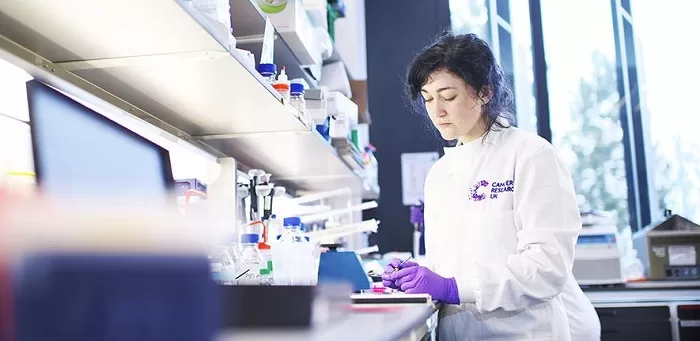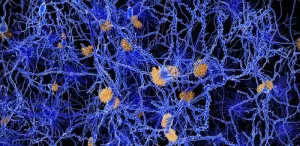Finding New Ways to Diagnose Childhood Brain Tumours

Cambridge researchers are using new techniques to distinguish different types of medulloblastoma, a type of brain tumour in children.
Funded by The Brain Tumour Charity, this research aims to develop new ways to diagnose medulloblastoma using minimally invasive methods, protecting the quality of life of children with this diagnosis.
Medulloblastoma is the most common cancerous childhood brain tumours, accounting for 15-20% of all childhood brain tumour diagnoses. Around 52 children are diagnosed with a medulloblastoma each year in the UK. These tumours are fast growing and develop at the back of the brain in the cerebellum.
Dr Jessica Taylor, a postdoctoral researcher at the University of Cambridge working in Professor Richard Gilbertson’s lab at the Cancer Research UK Cambridge Institute, will focus on one of the four subtypes of medulloblastoma – wingless (WNT) medulloblastoma. WNT-medulloblastoma is typically difficult to operate on, but is highly curable with chemotherapy and radiation.
The research will use antibodies that have been designed to bind to the WNT-medulloblastoma cells. Once bound to the cells, they will be visible on a PET scan and can be used to diagnose this subtype of medulloblastoma. This method avoids the use of invasive surgery and so will protect children from the potential long-term, damaging effects of surgery such as memory problems and speech issues.
Dr Taylor, the recipient of a Future Leaders Award from The Brain Tumour Charity, said: “With one in four children with this tumour type suffering long-term memory loss and speech issues after surgery, it is important that we work towards improving diagnostic methods which avoid surgery.
“I hope my research will change the way medulloblastoma is clinically diagnosed and that it will improve the treatment and quality of life for children diagnosed with this disease.”
The antibodies will be designed to bind to drugs that could treat WNT-medulloblastoma. This innovative approach would deliver treatments directly to the tumour, potentially replacing the need for more traditional chemotherapy. This could have several benefits including giving patients an additional treatment option and offering a more targeted therapy, potentially reducing the side effects from treatment.
Dr David Jenkinson, Chief Scientific Officer at The Brain Tumour Charity, said: “This innovative project exploits the features of WNT-medulloblastoma to create specific antibodies that will help diagnose and even treat this type of tumour, avoiding unnecessary surgery for the children diagnosed. Focusing research on non-invasive diagnostics and treatments helps to prevent long-term damage that can result from surgery.”
Source: University of Cambridge















